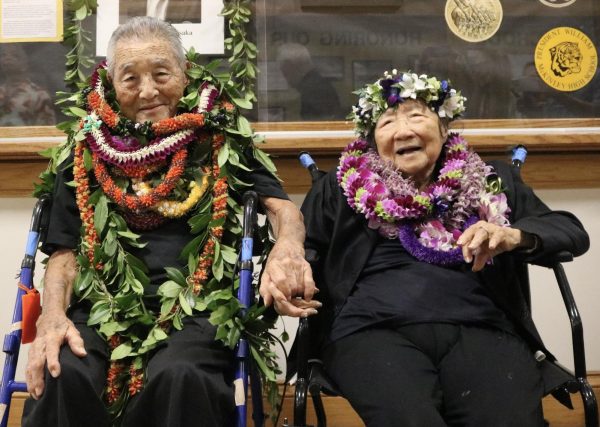
2024 Hawaii High School Journalism Awards – Nonfiction Storytelling – Second Place
At 98 years old, Norman Yukio Hashisaka (c/o 1943) is still able to recall the education philosophy of his former principal, Dr. Miles E. Cary.
“Every morning, Dr. Cary would have assemblies (in front of the administration building),” Hashisaka said. “(Saying) the Pledge Allegiance to the flag, Boy, we had strong loyalty to the U.S.”
It has been over eighty years since Hashisaka stepped onto McKinley’s campus since graduating.
Hashisaka was born on Oahu in Waianae on Aug. 10, 1925, with the name of Yukio, but grew up on Kauai from grade school until sophomore year at Kauai High School.
Hashisaka and his family moved to Honolulu in June of 1941 where he transferred to McKinley as a junior. Hashisaka said they lived in the McCully area and Daniel Inouye (c/o 1942), a future United States senator and war hero, was their neighbor.
“He was real nice, a real country boy,” Hashisaka said. “He would take me to his favorite places, the Nuuanu YMCA. I enjoyed it. There were all kinds of games.”
On the morning of Dec. 7, 1941, Hashisaka was walking down King Street toward Makiki Christian Church when he saw dark clouds billowing from the direction of Pearl Harbor.
“I was thinking, ‘What were they (United States Military) doing on an early Sunday morning,’” Hashisaka said.
When he reached the church, the radio was on at full blast, announcing that Pearl Harbor was being attacked by Japanese planes.
“It was the beginning of the Second World War,” Hashisaka said. “It was quite an experience for me. It was quite a shock at that time.”
After the attack, the military and industries on the island requested help, such as digging trenches, cutting kiawe trees and working in the pineapple and cane fields.
Hashisaka worked at the pineapple cannery in the warehouse of the labeling and packing department during the summer vacation after junior year.
“As high school students, we did whatever we could do,” Hashisaka said. “We volunteered and joined groups to help with the war effort.”
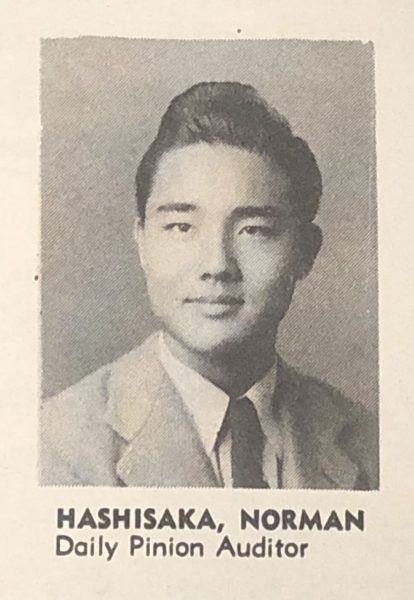
Hashisaka graduated in 1943 and started working at the post office in downtown Honolulu. At the time, the military sent a recruiting team to Hawaii looking for people willing to enlist and who were fluent in Japanese. Hashisaka heard about the recruiting team and decided to help.
“The U.S. Army needed help really badly,” Hashisaka said. “My parents communicated in Japanese. They were immigrants from Japan and they sent me to Japanese school.”
Hashisaka went to the recruiting office at the Nuuanu YMCA and told the officer “I’m not that good (at Japanese) but I am interested in helping.”
The officer gave him a series of tests that consisted of reading and writing in Japanese.
“I took the reading test but I don’t think I passed because I wasn’t good at reading the kanji, but no, he said ‘No, you passed.’ He surprised me,” Hashisaka said, laughing.
After making the commitment to the recruiting officer, Hashisaka said, “When I go home, what do I tell my mother?”
Hashisaka went home to share his news. “Okaasan, I am going to the Army.”
His mother responded, “American jin da, America de umarete’ (You are an American citizen. You were born in America) so you are an American, She told me I am supposed to serve. No problem, go volunteer and go serve, but come back safe and healthy. ‘Matteru kara’ (she will wait for my return from the war).”
In 1944, Hashisaka was sent to Camp Savage in Minnesota for Japanese language training and Fort McClellan in Alabama for basic training. Day and night, he did nothing but read and write in Japanese. He also learned how to interrogate prisoners of war.
“I studied as hard as I could, even after lights out by studying in the toilet,” Hashisaka said. “I am not the smartest but I always give it my all.”
After completing his training, Hashisaka served in the Philippines as a part of the Military Intelligence Service, translating Japanese documents, maps, journals and diaries. During the Second World War, The MIS, mainly made up of the nisei, the second generation Americans of Japanese descent, served in the Pacific campaign.
During the final days of the war, the military asked for ten volunteers of the MIS to travel to Okinawa. Hashisaka volunteered but would not be chosen. A few months later, the war ended and everyone was overjoyed, however, Hashisaka and his comrades received news, The plane that transported the ten MIS soldiers to Okinawa died in a plane crash killing everyone on the plane. Most of the MIS were Hashisakas friends from Kauai and McKinley. With the loss of their friends and the war ended, there was a mix of sadness and joy all at the same time.
For more than 30 years, the MIS veterans’ actions in the war remained in secrecy until the records were available to the public in 1972 under the Freedom of Information Act.
Even after the operation became unclassified and the MIS were credited with shortening the war by two years and saving countless lives, many of the MIS veterans, including Hashisaka, decided to remain silent, showcasing their true loyalty to the United States.
After the war ended, Hashisaka and other MIS personnel traveled to Japan to translate in the Yokohama War Crime Trials. Through his time serving as a translator, he witnessed the Japanese soldiers who were in charge of prisoners of war camps sentenced to life in prison or death due to their treatment of the POWs. He stayed his required two and half years and returned to Hawaii.
When Hashisaka returned to Hawaii he said to himself “I am an American citizen. I fought in the Second World War. I wanted an American first name, English name!” Hashisaka said.
Hashisaka had friends who had the name Norman and he said, “I like that name… As soon as I got discharged, I went to the governor’s office and he signed the paper. That’s It. Simple!” Hashisaka said, laughing. “‘Til this day I have the first name, Norman.”
Hashisaka graduated from the University of Hawaii at Manoa in 1950 with a bachelor’s degree in psychology and economics with the help of the GI bill. He met his wife, Mabel Kawakami, in a Japanese course. He started with German but switched because learning German was “too hard.” They got married in 1954 and raised three children: Reid, Ruth, and Ann.
Hall of Honor
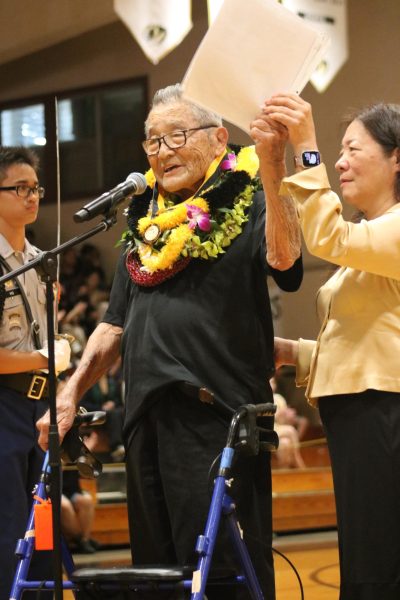
On Jan. 26 2024, Norman Yukio Hashisaka was inducted to McKinley High School’s Hall of Honor. Family and friends gathered around Hashisaka, congratulating him for this honor. Hashisaka would be recognized by legislation with Hawaii State Legislature Certificate from Representative Nadine K. Nakamura, Representative Dee Morikawa, Representative Luke A. Evslin, Speaker of the House Scott K. Saiki, Chief Clerk Brian L. Takeshita, President of the Senate Ronald D. Kouchi and Senate Chief Clerk, Carol Taniguchi.
He would also receive Certificate of Special Congressional Recognition from US Senator Mazie K. Hirono and U.S. Congressman Ed Case and Certificate of Recognition from Lieutenant Governor Sylvia Luke. As a final honor for Hashisaka, Mayor of Kauai, Derek S.K. Kawakami proclaimed Jan. 26 to be Norman Yukio Hashisaka day.Hashisaka was extremely overwhelmed.
The Hall of Honor was created in 1986 to recognize McKinley’s outstanding alumni who have brought honor to the school and community through their achievements and contributions.
The student body was introduced to Hashisaka in the gym. Many performances were showcased to honor Hashisaka. Kenny Endo Taiko Center of the Pacific performed taiko music and Dazz Toguchi (c/o 2001) performed a Japanese cultural dance. The McKinley Jazz Band with Johnathan Cabagbag performed while Aloha Dancesport performed swing dancing, which was popular during the 1930’s and 40’s.
Hashisaka shared his time at McKinley, working odd jobs and his experiences during the war.
“We were able to prove without a doubt that we were Americans,” Hashisaka said in his speech. “Not just for ourselves but for those who came before us.”
As Hashisaka spoke, fifteen hundred students, faculty and staff silently listened to his advice.
“Work hard, believe in yourself and even during dark times, never lose hope,” Hashisaka said. “Be resilient … Your future is bright, just believe… Someday you could be here receiving this great honor … Mahalo, Go Tigers!”
To see Hashisaka’s speech: click http://bit.ly/Hashisaka
Awards and Recognitions:
-Grand Marshal for the Veterans Day parade in Kapa‘a, Kauai, and was written in
the Garden Island Newspaper, “A Tribute to all World War II Veterans, the Greatest
Generation.” Living Treasures of Kauai and Niihau, Excellence in Business with
Aloha, Waimea Spirit Awards and Japanese Culture Society Kansha, or Gratitude
Award, The Japanese Cultural Center of Hawaii “Sharing the Spirit of Aloha” award.
-Congressional Gold Medal, Good Conduct Medal
-Lions Club West Kauai: 67 years of service. Lifetime membership
-Kauai Hospice donor -Hawaii Foodbank donor
-McKinley High School Boys basketball donor
-McKinley High School Foundation donor





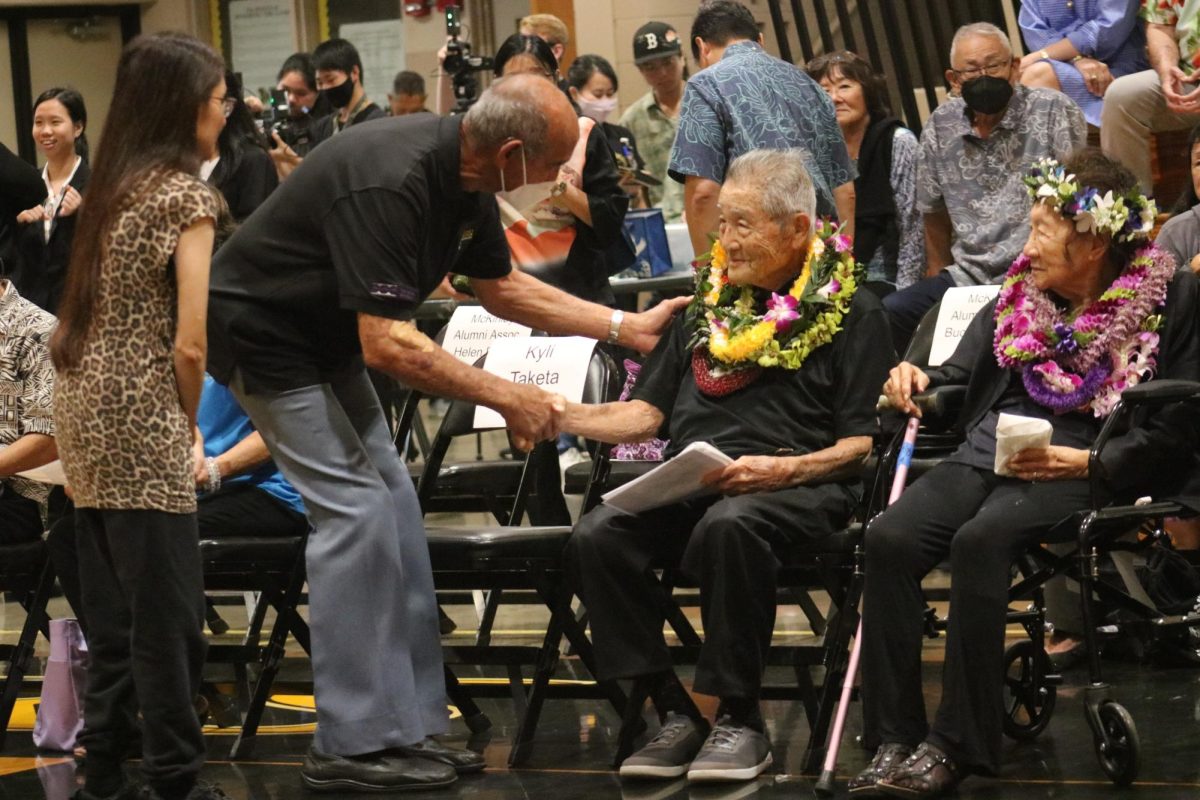
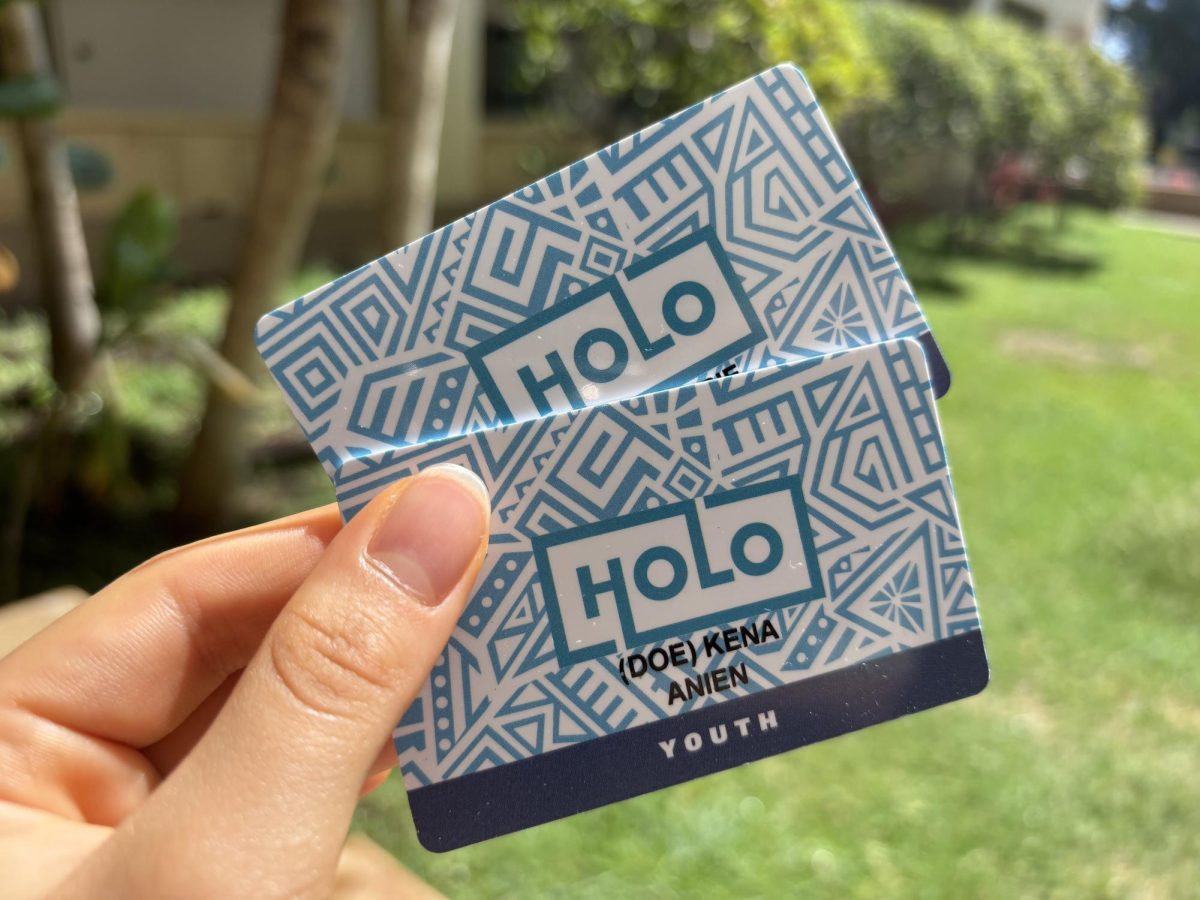
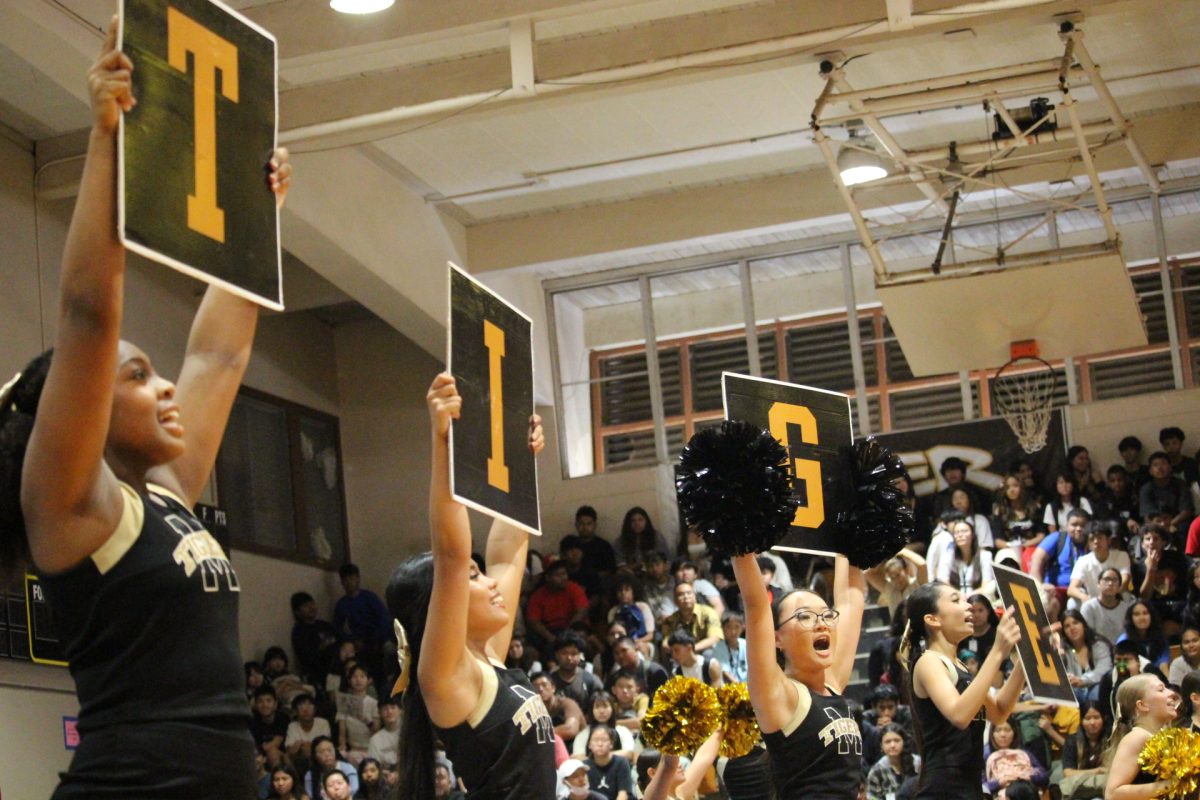
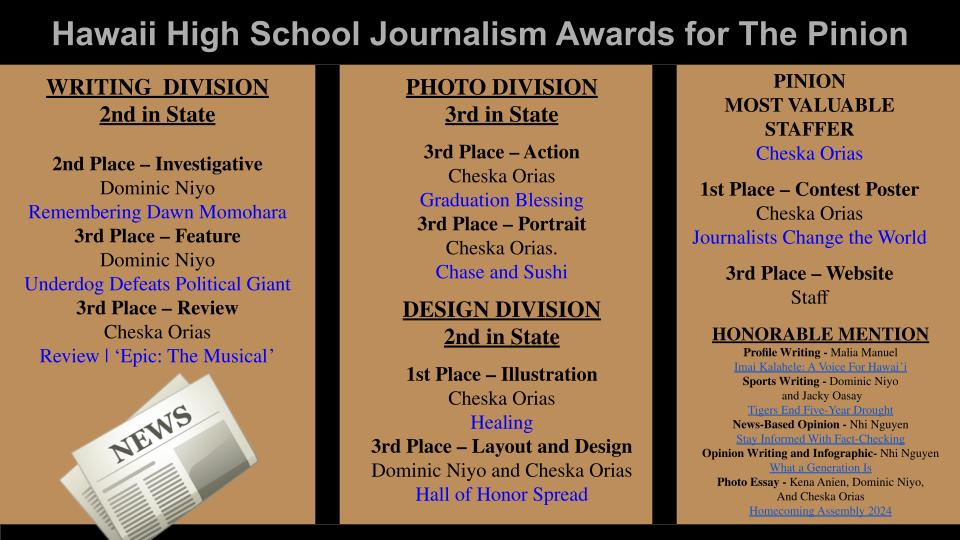
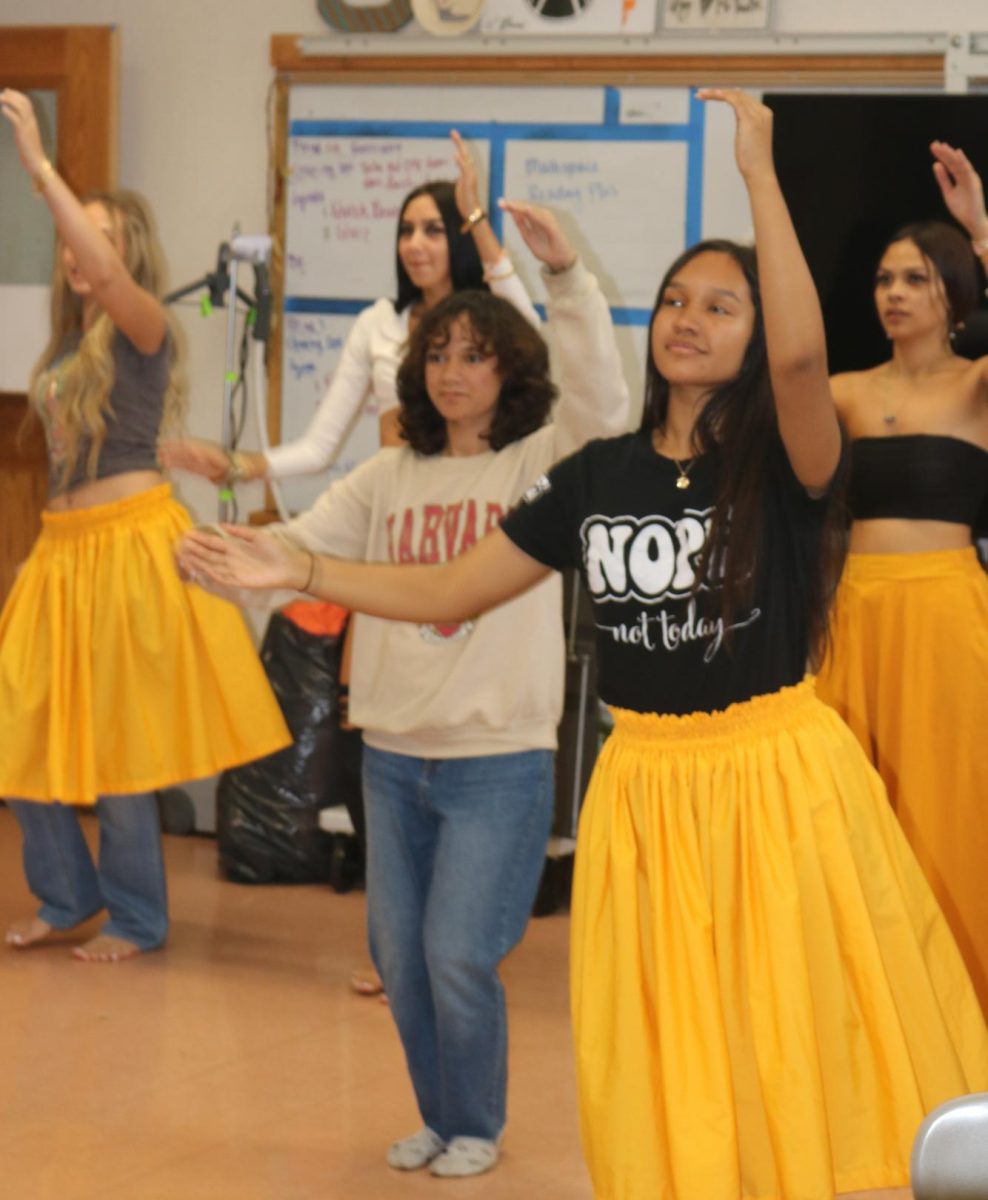
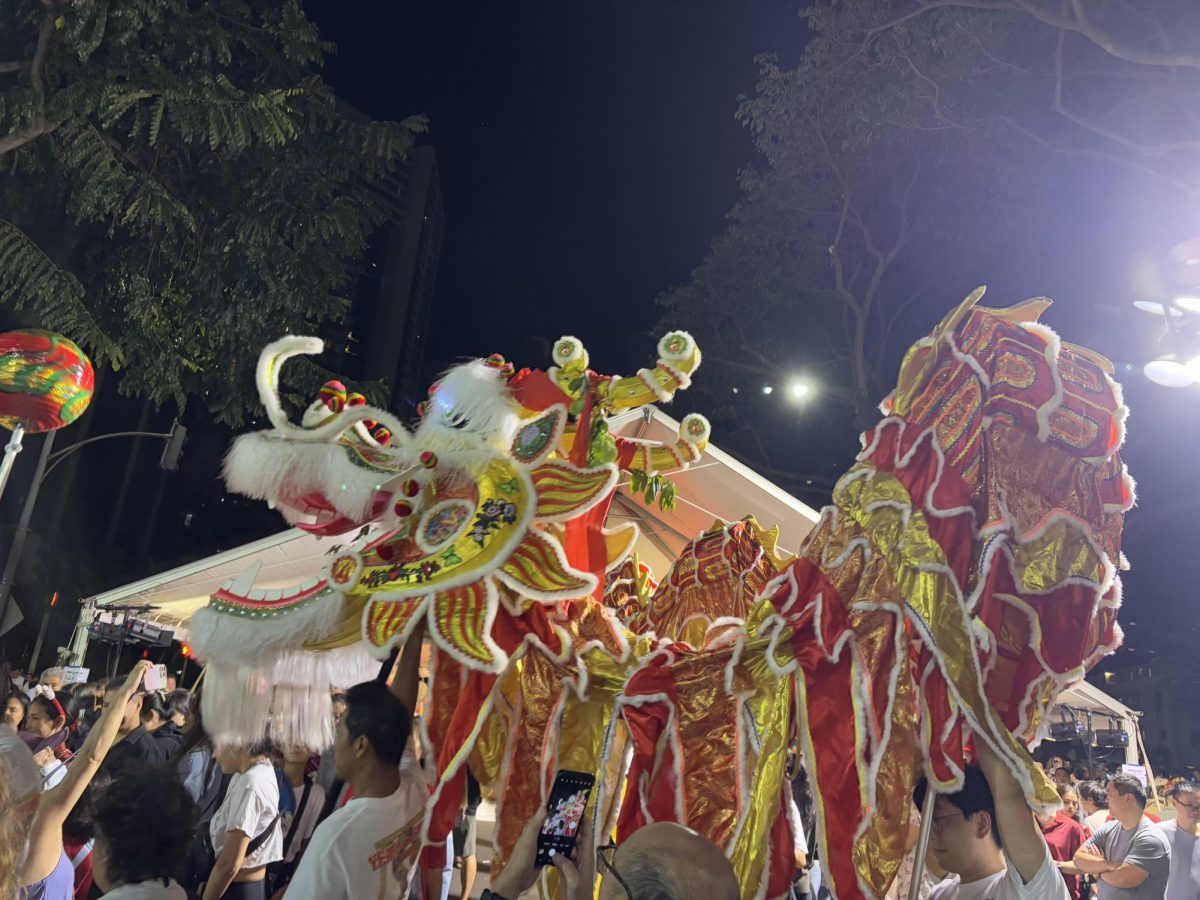
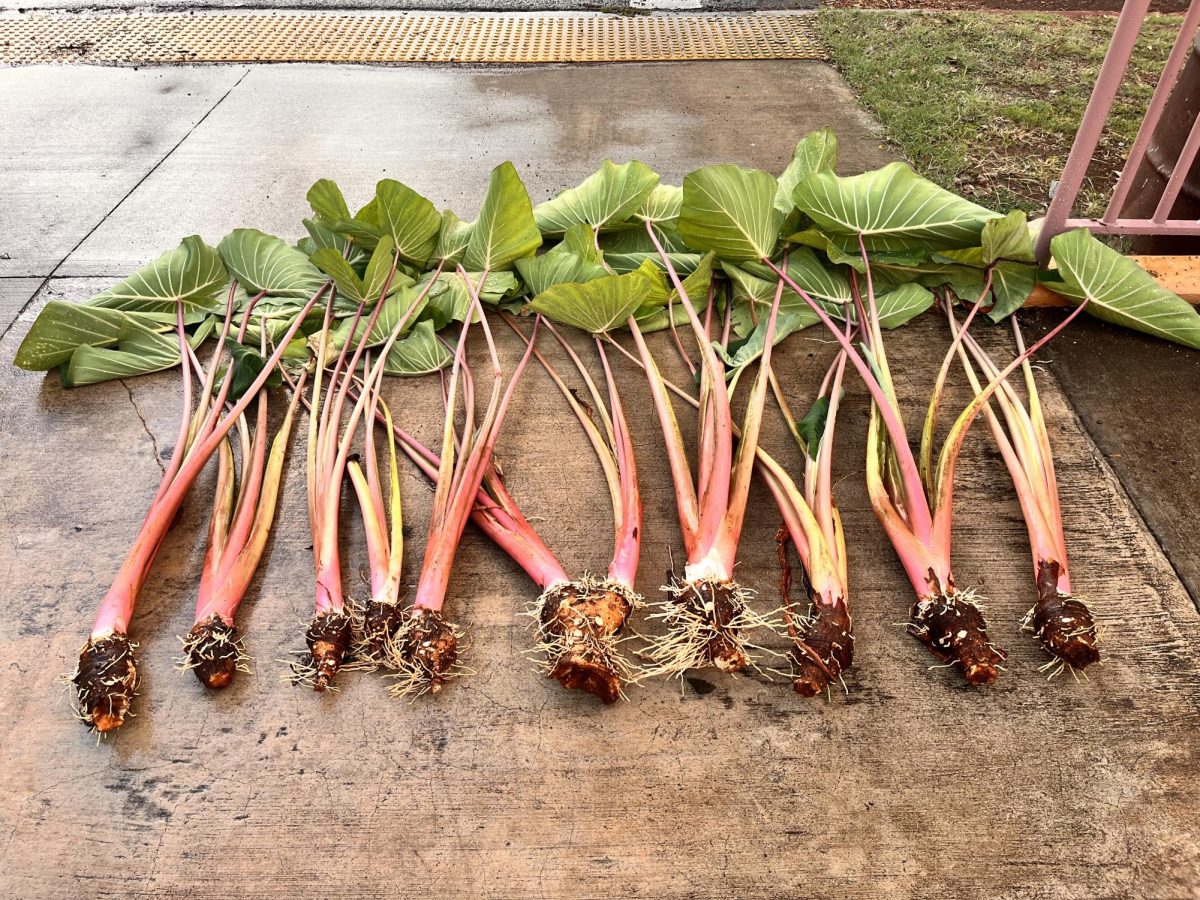
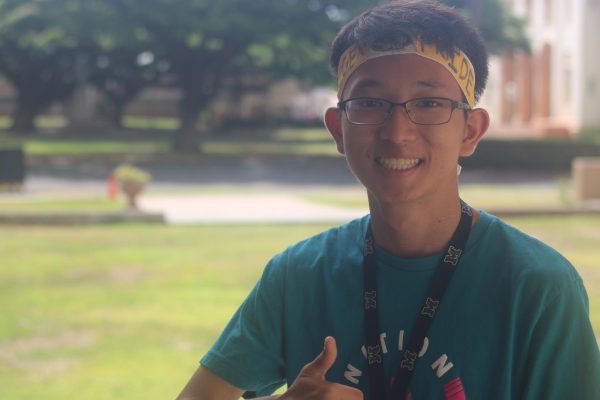
Dominic Niyo • Mar 25, 2024 at 10:05 AM
Informative and encouraging. Great article!